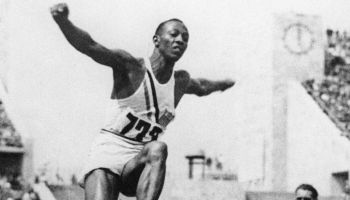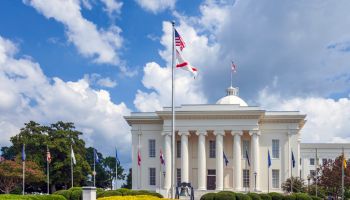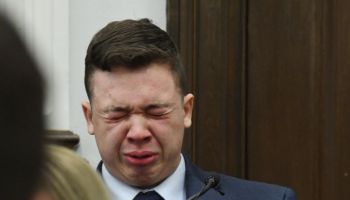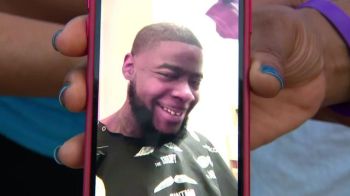The California Supreme Court ruled again on same-sex marriage. This time it did to uphold Proposition 8, restricting marriage to one man and one woman. In a 6-to-1 decision the justices decided that Proposition 8 would remain part of the state constitution. And the 18,000 same- sex couples that ran to the altar to legally consecrate their nuptials before November 4, 2008, well they’re the lucky ones, since our right to marry can be so easily taken away by the pull of a lever.
For a fleeting moment in 2008 we saw democracy work for same- sex couples in California. In a 4-to-3 decision, the California Supreme Court in May of that year ruled that a “separate and unequal” system of domestic partnership for same-sex couples is not only blatantly discriminatory, but it is also unconstitutional.
The Court upheld the democratic process, offering same- sex couples “marriage” and not “marriage -lite ” with civil unions and put forth the following statement:
“In contrast to earlier times, our state now recognizes that an individual’s capacity to establish a loving and long-term committed relationship with another person and responsibly to care for and raise children does not depend upon the individual’s sexual orientation, and, more generally, that an individual’s sexual orientation — like a person’s race or gender — does not constitute a legitimate basis upon which to deny or withhold legal rights.”
But California’s same-sex couples and their allies knew the knot on this issue was not securely tied. Proposition 8, so rightly dubbed “Proposition Hate,” would be the determining factor. And it was.
With six months now passed since the historic day in November 4, 2008 that threw LGBTQ Americans under the bus, and symbolically removed black Americans, with the election of Barack Obama as this nation’s first African American president, from riding on the back of the bus, I’m confused in terms of where my seat is on this bus ride toward democracy being both African American and lesbian and bi-coastal.
Yes, I live in Massachusetts, the first state in the nation to legalize same- sex marriage. And on May 17 Massachusetts celebrated five years of marriage equality. But one of my jobs-coordinator of the Africa American Roundtable at the Center for Lesbian and Gay Studies and Ministry at the Pacific School of Religion – is in California. I’m free to marry as long as I stay within the five states that now offer me the right to.
The fight for marriage equality in the U.S. is similarly to my ancestors’ fight for freedom. In their day, before the Civil War in 1861, the U.S. consisted of nineteen free states and fifteen slave states. As a matter of fact, in the 2004 presidential race between John Kerry and George Bush where marriage equality was a hot-button issue, the election map results between Kerry’s blues states and Bush’s red states corresponded to the pre-civil war free states and slave states, respectively.
As LGBTQ Americans we’re not in slavery, but we are certainly in a civil war. Whereas President Lincoln acted on behalf of my ancestor’s civil rights, Obama is immovable on ours.
When Press Secretary Robert Gibbs was asked for a response to California’s ruling he told the Associated Press, “”I think the issues involved are ones that you know where the president stands.”
When society narrowly defines marriage as the union between a man and a woman, it is not only policing the sexual behaviors of lesbian and gay people, but society is also policing the sexual behaviors of heterosexuals. Handcuffing marriage to a heterosexual paradigm merely chokes its possibility of ever flourishing and lasting, especially as we are coming to understand the fluidity of not only gender and sexual identities but also of the constant changing configuration of family units.
But with heterosexual marriage being so sacred, opponents to same-sex marriage fail to see how it is constantly desecrated on any given weeknight by being slotted for family entertainment – television shows like “The Bachelor” that cavalierly join people together for high Nielsen ratings.
To me, democracy is an ongoing process where people are part of a participatory government working to dismantle all existing discriminatory laws that truncate their full participation in society. The work of democracy is rooted in justice and social change allowing us to see, along this troubling human time line, those faces and to hear those voices in society of the damned, the disinherited, the disrespected, and the dispossessed.
Democracy can only begin to work when those relegated to the fringes of society can begin to sample what those in society take for granted as their inalienable right.
A government is ethically bankrupt when it legally frames a minority group’s civil rights as a ballot question.
If I waited for slaveholders to free my ancestors predicated on a ballot vote, we all wouldn’t be living in the America we know today.















